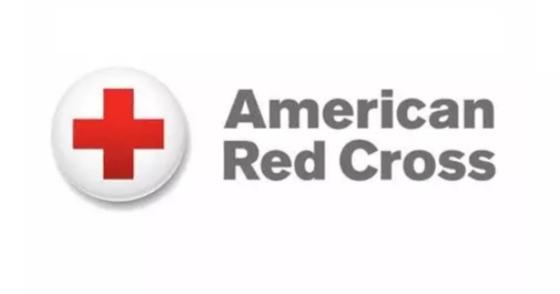As meteorologists along the East Coast track the season’s next predicted hurricane, the American Red Cross of North Carolina reminds residents during National Preparedness Month that taking a few minutes to plan ahead can have a big impact on how you, your family and your household fare during weather events.
Whether it’s a hurricane with storm surge and flooding or wildfires and extreme heat, families across the country need to make sure they’re ready in case of an emergency.
“Disasters can happen at any time, often without warning, changing lives forever in just minutes,” said Rebecca Pittman, Regional Disaster Officer for the North Carolina Region. “As we experience more extreme weather, it’s critical to help protect your loved ones and National Preparedness Month is the ideal time to get your household ready for emergencies.”
Pittman said individuals can get ready for disasters by making a plan to stay safe, gathering important supplies and knowing how you’ll stay connected in case family members become separated for one reason or another.
Follow these steps to prepare for emergencies:
- Depending on the emergency, you may need to stay where you are or go somewhere else to stay safe. If you may need to leave, think about where you will go, how you will get there, where you will stay and what you’ll take with you. Plan well in advance if you’ll need help leaving or use public transportation.
- Next, gather and organize critical supplies — like food, water and medicine — into a go-kit and a stay-at-home kit. Your go-kit should include three days of supplies that you can take with you. Your stay-at-home kit should have two weeks of food and water, and a one-month supply of medications, if possible.
- Customize your kit to meet your household’s specific needs. If you have young children, don’t forget formula and diapers. If you have pets, include leashes, carriers, food, bowls, litter and a litterbox.
- Make a plan to reconnect with loved ones if you are separated or if the phone or internet is down. Write down important phone numbers on a contact card and carry it with you.
- Finally, download the free Red Cross Emergency app for real-time weather alerts and expert advice in both English and Spanish. And don’t forget to sign up for free emergency alerts from your local government to get critical information during local emergencies.
This year, experts forecasted active wildfires and hurricanes — predictions that are proving to be true. In July, Hurricane Beryl broke records as the earliest Category 5 storm ever recorded and in early August, Hurricane Debby brought widespread flooding to much of the East Coast. So far in 2024, 2.7 million more acres of land have been burned by wildfires compared to all of 2023. Plus, 2024 is on track to be the hottest year on record according to experts. Altogether in 2024, the U.S has experienced 19 climate disasters, each with losses of over a billion dollars — more than double the average from the last 40 years.
When these disasters happen, the Red Cross is there providing food, shelter and comfort to ensure no one faces such a difficult time alone. To help families better cope with increased extreme weather, the Red Cross is also enhancing our support for those who need it most and increasing our capacity to respond to non-stop disasters.
“The best defense during an emergency is to be prepared, and that’s true for both our individual families and our entire community,” said Pittman. “During National Preparedness Month, consider donating to help people affected by disasters big and small, or making an appointment to give blood. If you have the time, take a first aid class or put on a red vest and join us as a volunteer.”
Visit redcross.org or call 800-RED CROSS (800-733-2767) to learn more today.
